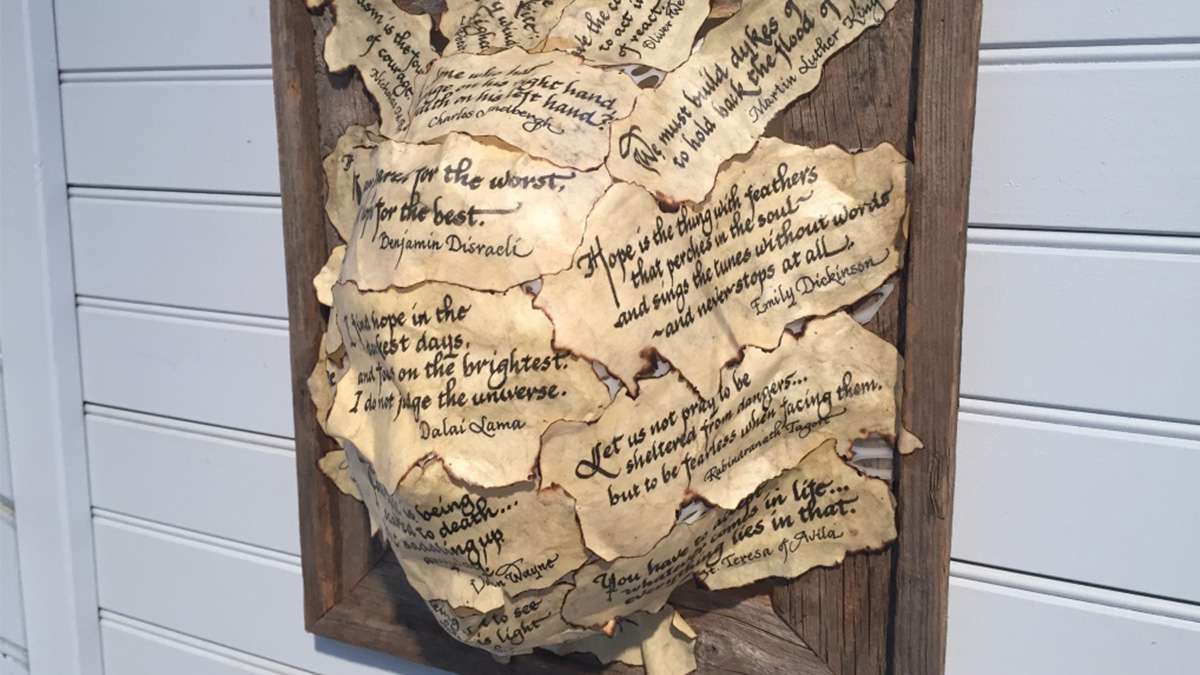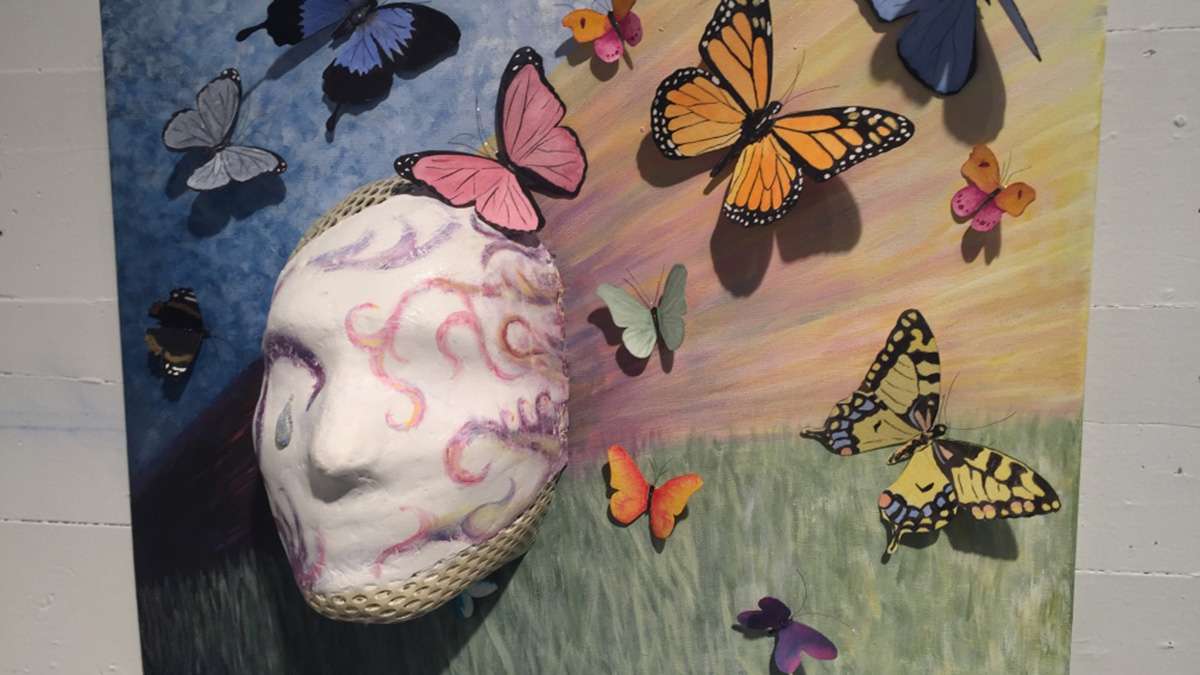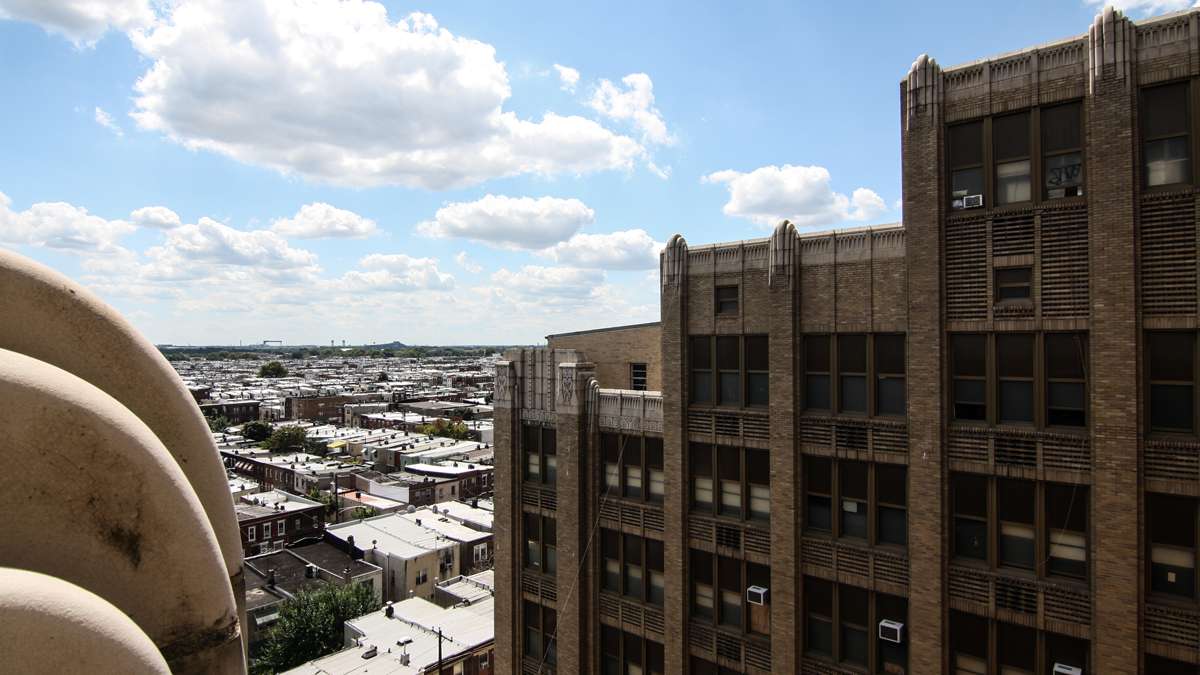‘Fin’ a bad beginning for Bok building’s rebirth
There has been a lot of criticism of Le Bok Fin, a pop-up bar and restaurant in South Philly, which closes on Sunday. Millennials are dancing on the grave of a public school. The developer will need to listen to the community around the school to truly bring the best out of the space.
When Le Bok Fin, a new temporary French restaurant and bar, popped up on top of the shuttered Bok Technical High School in South Philly earlier this month, it also began popping up all over my social media feeds.
There has been a lot of push back against Le Bok Fin, named after the “restaurant” run by the high school’s culinary students. A local activist group, Philadelphia Jobs with Justice, has been asking people to write negative Yelp reviews, while others are busy blogging about the issue. A friend of mine posted a critique of the space. I agreed with the argument, but thought I should check it out and judge for myself before it closed up shop on Sept. 13.
Twenty-somethings filed in the front doors at happy hour on a recent Friday. My friends and I lined up to sign a waiver. (Some have said that Le Bok has a “members-only” policy, but it’s really more like “please sign this waiver so, if you die, we aren’t liable.” Five women posed under the vintage boys’ gymnasium sign for a photo I later saw Instagram with the caption, “MySoCalledLife.”
On the roof, with sweeping views of South Philadelphia and the Center City skyline, there is no denying the beauty of the building’s vantage. Sam Smith played in the background, people enjoyed their bottles of rosé in the foreground. I couldn’t deny myself an Instagram post of the setting sun, as uneasy as I felt.
When I really think about what Le Bok Fin represents, I realize there is something wrong here.
Millennials are dancing on the grave of a public school. This pop-up and what it represents is ill-advised. This is the first thing to take place at the building since it closed, and it’s a missed opportunity for the building developer, Scout Ltd., to do something important.
What we have instead is some really bad PR. But that’s hard to avoid when gentrification is such a dirty, dirty word.
“To close a school and then a couple years later turn it into a bar, it’s a total slap in the face,” Octavios Mitchell, a former student told the Philadelphia Inquirer. “Not only to the students, but to the community.”
Others are less gloomy, including Philly Mag’s Victor Fiorello, City Paper’s Josh Kruger, and Street Dept. blogger Conrad Benner, who had a chance to photograph the building in August. “I don’t think there’s a single Philadelphian who wouldn’t put fixing our public school system at the top of their ‘must do’ list for the city,” Benenr said. “It’s hard to immediately separate this building from that deep frustration. … I also believe that leaving this building vacant does nothing to help the community around it, nor does it help to address the unjust underfunding of our city’s public schools.
“The School District has sold the building. We can’t go back, so let’s make the best of it. Let’s use it to create opportunity in the community. And let’s move forward thoughtfully. And that’s not some pie-in-the-sky stuff. This building could have easily been sold to developers who would have renovated the space into condos.”
On the subject of developers, I had the opportunity to chat with Lindsey Scannepieco, head of Scout, and daughter of local high-rise developer Tom Scannepieco.
I know there has been a lot of push back the past couple of weeks.
To be honest, I think the community is really supportive. All of our neighbors are super supportive. The facts are so wrong that have come out, which is why I haven’t really been responding to it. That’s the truth of it. We have been doing great. We have been packed. We had tons of support — support from the people who we are really trying to work with.
Tell me a little bit about Scout.
We started off as an urban design project in 2011. Our work has always been … very focused on how to enhance and push a neighborhood physically and economically and add value.
Our initial project, we did a community engagement project in London. We did art installations there. We focused really on temporary uses. That is how we first started off. After that project, one of the things we asked ourselves: How can we become more invested, and how can we participate more in the long-term strategy and development of an area? We were being commissioned by public sector entities, developers, and arts organizations to come in and work with communities to create something. At that end of the project, we weren’t able to stay involved with that community. We said to ourselves how can we do this better?
I’m from Philadelphia originally. Someone sent me the link phlschoolsales.com (laughs), and Bok immediately caught my interest. Its vocational past, its architecture, its location in the city. There was just so much about it that I thought was so interesting and we threw our hat in the ring, got selected and it has been an adventure ever since.
Yeah. I actually went last weekend.
Oh yeah? Great. What do you think?
I definitely think it’s interesting. I don’t think it was the best idea to begin with the restaurant and bar. I feel like starting with that type of thing could be very polarizing — which I think it has become. So …
I disagree with that. I think what we have been able to do is make people interested and aware of the building. We built it ourselves. What has been hard for us is getting people to understand that we are the type of developers that actually build design spaces. I think that is quite rare. We spent a lot of time trying to get something to happen in the building.
We had an alumni there on Sunday night who had graduated in ‘89. And even in her years at BOK, she had never been on the roof. She was really excited about it. She was really excited to be up there.
I think that the conversations that are happening are not capturing the overall community. I also think that this is just a beginning thing. This is 24 nights.
After we close, we have secured a huge grant to be able to do StoryCorps to actually listen to the stories of South Philadelphia to get people to tell us their ideas for the building or anything they really want.
StoryCorps hasn’t come to Philadelphia in over five years, and they have never come to South Philadelphia.
[…]
It really was a way to capture and share stories. We secured funding to have multiple translators there to be able to engage people [for] who English isn’t a first language.
For people who are perhaps judging us, I don’t think there is any basis for that. […] This is the beginning of a series, a very long series of a very long term development. Other projects like StoryCorps will speak to different types of people in different ways. The building is very large, and it doesn’t have to be just one thing.
It’s also going to be a co-working space. Or possibly a makers’ space?
We have a lot of infrastructure in the building because of the vocational past. We have a culinary-strength kitchen, woodshop, metal shop, and auto mechanic shop.
We are interested in how those can be reused and how infrastructure that was previously discarded can be reimagined and re-energized by a wide range of tenants. That could be co-working. That could be makers’ space. It could be a wide range of things.
[…]
We didn’t dispose of any materials in the school. The School District cleared out the building. We got the keys nine weeks ago. We opened our space with only four weeks of ownership. It is quite an accomplishment.
We want to pay homage to the past of the building. We want to honor and preserve the building. We know it will always feel like a school, but it won’t be a school again. We know that is a loss to many people who went to that school and worked at that school. But the people who have come to our community engagement sessions have had been extremely supportive and wonderful.
We want to preserve that history. We want to preserve Bok as a place of training and making. We want to honor those students and allow people to learn about what the past was as well as look forward to the future. That is what we are really excited about.
I noticed on Instagram that there is going to be some sort of alumni meeting.
That’s right. Whenever we have alumni up there, they get a discount but we are throwing a big closing alumni event for our closing night.
Confusion was evident in Scannepieco’s voice when she spoke about the future of the building — which, it seems, is still anyone’s guess. And I’m not sure if she is really listening to critics. There seems to be a lot of deflecting and not enough absorbing. More importantly, she and her team will need to listen to the community surrounding the school — from old-family Italian Americans to newly arrived Millennials, from Mexican bodega owners to South Asian shopkeepers.
Hopefully, they communicate back to the neighborhood how that input is influencing the next chapter of the building. But for now, I don’t think that a French restaurant and bar is the best story that Bok can tell.
WHYY is your source for fact-based, in-depth journalism and information. As a nonprofit organization, we rely on financial support from readers like you. Please give today.






































